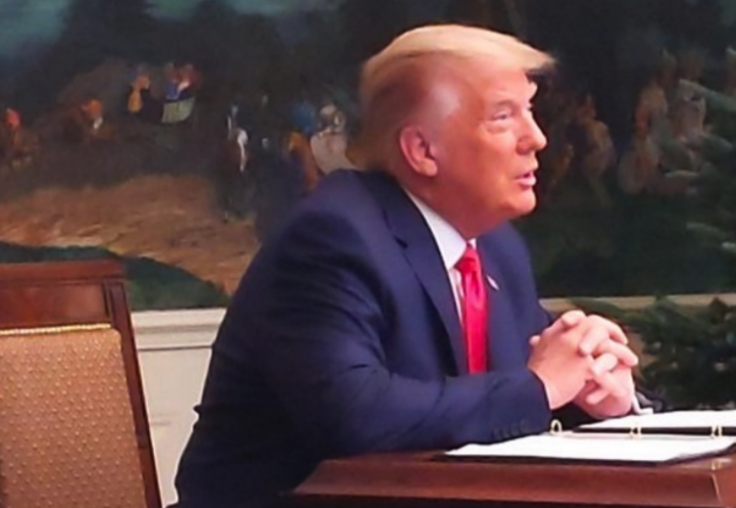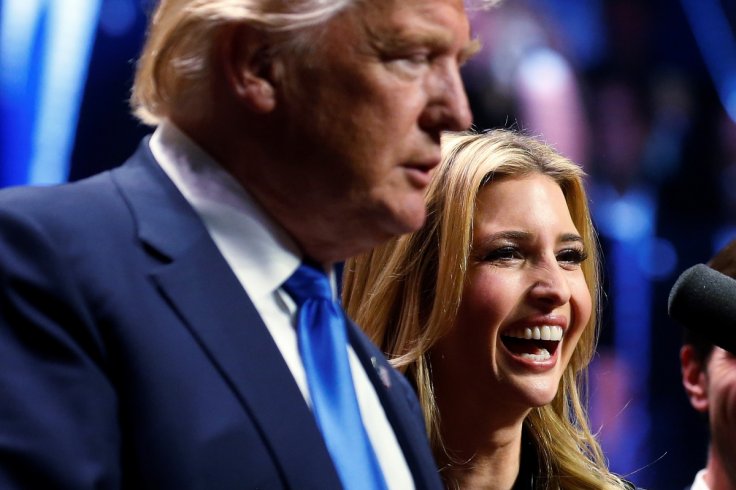With President Donald Trump stepping into the final six weeks of his presidency, one question that hogs the limelight is his powers of pardon. He pardoned former national security adviser Michael Flynn last week, on top of other federal pardons he issued earlier during the presidency. More pardons are expected, observers say.
However, the vexing question is if the president will pardon himself. The question is relevant, because Trump, as unpredictable and unconventional as he is, could actually do it. There's nothing to concretely establish that the president will not absolutely go down that path. Secondly, there is no precedence at all for self-pardon in the entire history of the United States. No president ever has pardoned himself, and hence, the supreme court has not had a chance to issue a ruling on the topic.
Trump had unequivocally said in 2018 that he had the "absolute right" to pardon himself. While saying so, he also remarkably watered down the possibility of this happening. "As has been stated by numerous legal scholars, I have the absolute right to PARDON myself, but why would I do that when I have done nothing wrong? In the meantime, the never ending Witch Hunt, led by 13 very Angry and Conflicted Democrats (& others) continues into the mid-terms!" Trump said in a tweet in June 2018.

President-elect Joe Biden has said he won't push criminal investigation against President Donald Trump at the federal level after he takes office. At the same time, Biden has said he won't do anything about the state-level legal moves Trump will have to deal with. "There are a number of investigations that I've read about that are at a state level. There's nothing at all I can or cannot do about that,' he added.
So, Why Should Trump Need Pardon?
Currently the president does not face any charges. As long as he holds the office, he won't be charged with any offence as he is protected by presidential immunity. However, the scenario changes when he steps down and becomes a regular citizen. Just the same way Trump had led the campaign against Hillary Clinton on the 'Lock her up' catch phrase, his own enemies in the Democratic party will demand his prosecution on various grounds. Trump faces an almost similar situation. He was impeached, and has been an object of political and personal attack over his unconventional presidential conduct. The Democrats are baying for his blood.
Democratic Congressman Bill Pascrell of New Jersey has said the Department of Justice should probe 'the entire Trump regime' over its 'innumerable crimes.' His demand is echoed in various rungs of the Democratic party. Moreover, the president can even face private lawsuits on various grounds.
Here are 10 Key Facts About the Presidential Pardon in the United States:
1. Article 2 of Constitution
The presidential powers of pardon stem from the Article Two of the United States Constitution, Section 2, Clause 1. It says: The President ... shall have Power to grant Reprieves and Pardons for Offenses against the United States, except in Cases of impeachment." George Washington, the first president, used this power when he pardoned the leaders of the Whiskey Rebellion.
2. Can be Granted on a Presumptive Basis
The precedent is that the presidential pardon can be made on a presumptive basis. The nearest example is that of Republican president Richard Nixon, who was pardoned by Gerald Ford. Nixon, who was impeached over the Watergate scandal and resigned from office, had not been charged with anything. Yet the pardon by his former vice-president made sure he was not troubled by any legal challenged arising out of his contentious days in office.
3. President Does not Have to Show a Reason
This makes the pardon a straightforward matter for the president's view point. He does not have to present an argument about the mitigating circumstances in which the convict was seen. Besides, a presidential pardon is not reviewable by other branches of the government.
4. Self-Pardon has no Precedence
The the ability of a president to pardon himself is untested in the history of the United States. So Trump might as well 'try' it. Such a move will open a whole new legal chapter in the history of the US. Constitutional expert Brian Kalt said: "When people ask me if a president can pardon himself, my answer is always, 'Well, he can try ... The Constitution does not provide a clear answer on this."
5. Pardon Overturns Conviction but Record of Conviction Stays
A presidential pardon erases the criminal conviction but it does not, crucially, wipe out or expunge the record of the conviction. For example, a person pardoned must still disclose that he was convicted of an offence. He can of course, also disclose that he was pardoned.
6. Only Federal Crimes can be Pardoned
A presidential pardon only applies to federal crimes. The US constitution has clearly said it applies only to crimes against the United States. The Prosecution under state laws will still go ahead even if someone has been given presidential clemency.
7. Trump can Pardon Family

It's legal and there is recent precedent. President Bill Clinton pardoned his brother Roger Clinton on the last day of his presidency in 2001.
8. DOJ Opposed Self-Pardon in 1974
When Richard Nixon considered self pardon, the Department of Justice had opposed. Instead, the DOJ said Nixon could use another route. He could temporarily step down, be pardoned by the vice-president and then take power again. This could be done under the provisions of 25th Amendment of the US Constitution, which allows a president to stand down from office temporarily on account of any sort of inability.
9. Subject's Acceptance is Must for Pardon
For a pardon to be effective, the subject should accept it. And there have been cases in which the subject has turned down the pardon. In 1833, George Wilson, who was as convicted of robbing the US Mail in Pennsylvania and sentenced to death, was pardoned by president Jackson but the convict rejected the pardon.
10. Accepting Pardon an Admission of Guilt?
If indeed President Trump pardons himself, the moral weight of the confusion regarding the guilt element involved in presidential clemency will come to rest on his shoulders. In 1915, Associate Justice Joseph McKenna ruled that a pardon "carries an imputation of guilt; acceptance a confession of it." He was pronouncing judgment in the Burdick v. United States case.









